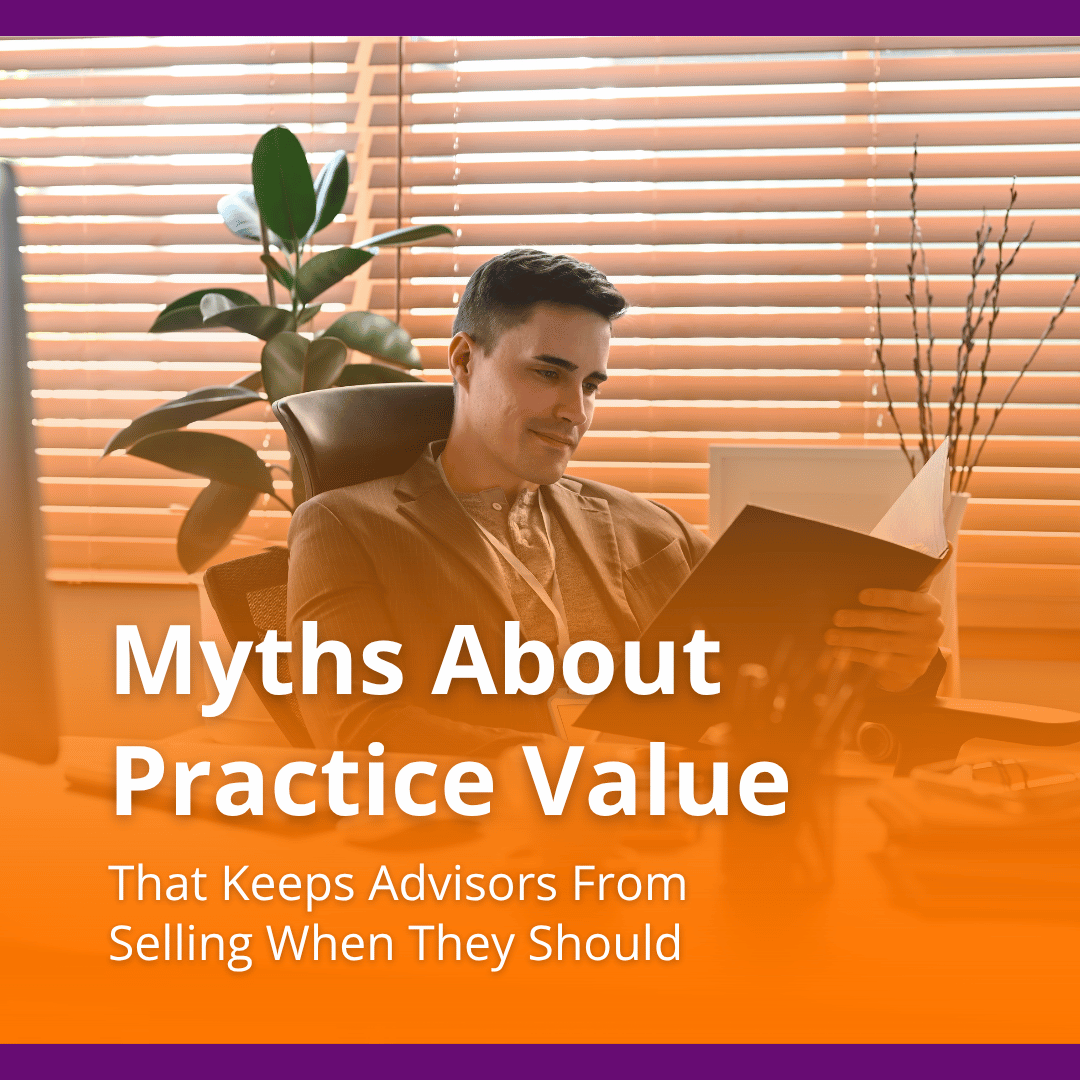How to Know If You’re Emotionally Ready to Sell Your Advisory Practice
You have pictured the day you sell your advisory practice. The deal closes. The pressure lifts.
Comprehensive, data-driven valuations and comparative equity analyses to accurately price your practice, establish market benchmarks, and support informed decision-making.
Comprehensive M&A guidance encompassing deal structuring, negotiation strategies, market listings, and transaction closings.
Comprehensive systems, targeted coaching, and in-depth assessments designed to optimize operational efficiency and enhance advisory team effectiveness.
Strengthen continuity through the implementation of formal continuity agreements, the establishment of legal entities, execution of enforceable legal contracts, and securing appropriate capital resources.
2 min read
 Todd Doherty
June 30, 2025
Todd Doherty
June 30, 2025

In our last post, we explained the many personal reasons advisors use to delay selling. Advisors also cite assumptions about their practice value and earning potential as reasons for delaying selling. These assumptions are based on common myths advisors have about their practice value, and it could be costing advisors real equity.
In our experience, most advisors underestimate the value of their practice. This is because they often rely on rule of thumb or other inaccurate methods of determining value. For many advisors who have been in practice for 20 years or more, their client value is likely at its peak, and will soon start declining, not gaining, in value. This is because client composition and the age of your client base is one of the most important factors influencing the value of your practice. It’s because of this, we recommend advisors get regular, formal valuations from a qualified third party. This way you know what your practice is really worth and can make smart decisions about the timing of your succession.
While most advisors underestimate the value of their practice, they often overestimate their income earning potential overtime. This is especially true when you consider the declining value of client assets due to an aging client base and rising expenses that can impact net income. Also, many advisors nearing retirement tend to slow down or stop marketing and growing their practice altogether. So instead of growing practice value and revenue, it soon slows and then declines.
The largest problem with these myths is that advisors are not treating their practice like an asset. For many advisors their practice is one of the largest, if not the largest, personal asset they have. Like all assets, you must weigh risk versus return and identify your risk on threshold. That is the point when the return from selling (monetizing equity) meets your portfolio requirements. If you continue holding on to your practice beyond that threshold, the value of your practice shows diminishing returns due to risk.
Overall, smart advisors don’t base their decision to sell on false assumptions. They base it on solid information. A detailed valuation from a qualified third party coupled with a true analysis of your practice as an asset and not just an income source will arm you with the data you need to make the right decision about your practice and your future.

Todd Doherty serves as Vice President for Advisor Legacy, where he leads advisors through the full M&A lifecycle—readiness, valuation analysis, buyer/seller matching, due diligence, and post-close integration. With more than 15 years in senior roles at financial advisory firms and hands-on ownership experience, Todd brings an operator’s lens to every engagement. His writing focuses on practical ways to boost enterprise value, structure win-win deals, and avoid execution risk. Todd collaborates closely with the firm’s valuation, lending, and legal partners to help advisors make confident, data-driven decisions.
Receive timely articles, tip sheets, events, and more right in your inbox.

You have pictured the day you sell your advisory practice. The deal closes. The pressure lifts.

Selling a company is often the largest financial event of a business owner’s life. Yet most exit conversations still revolve around valuation and...

Are you preparing to sell your business with a team you want to keep intact? Then you’re already thinking ahead. The moment a sale is in motion, your...